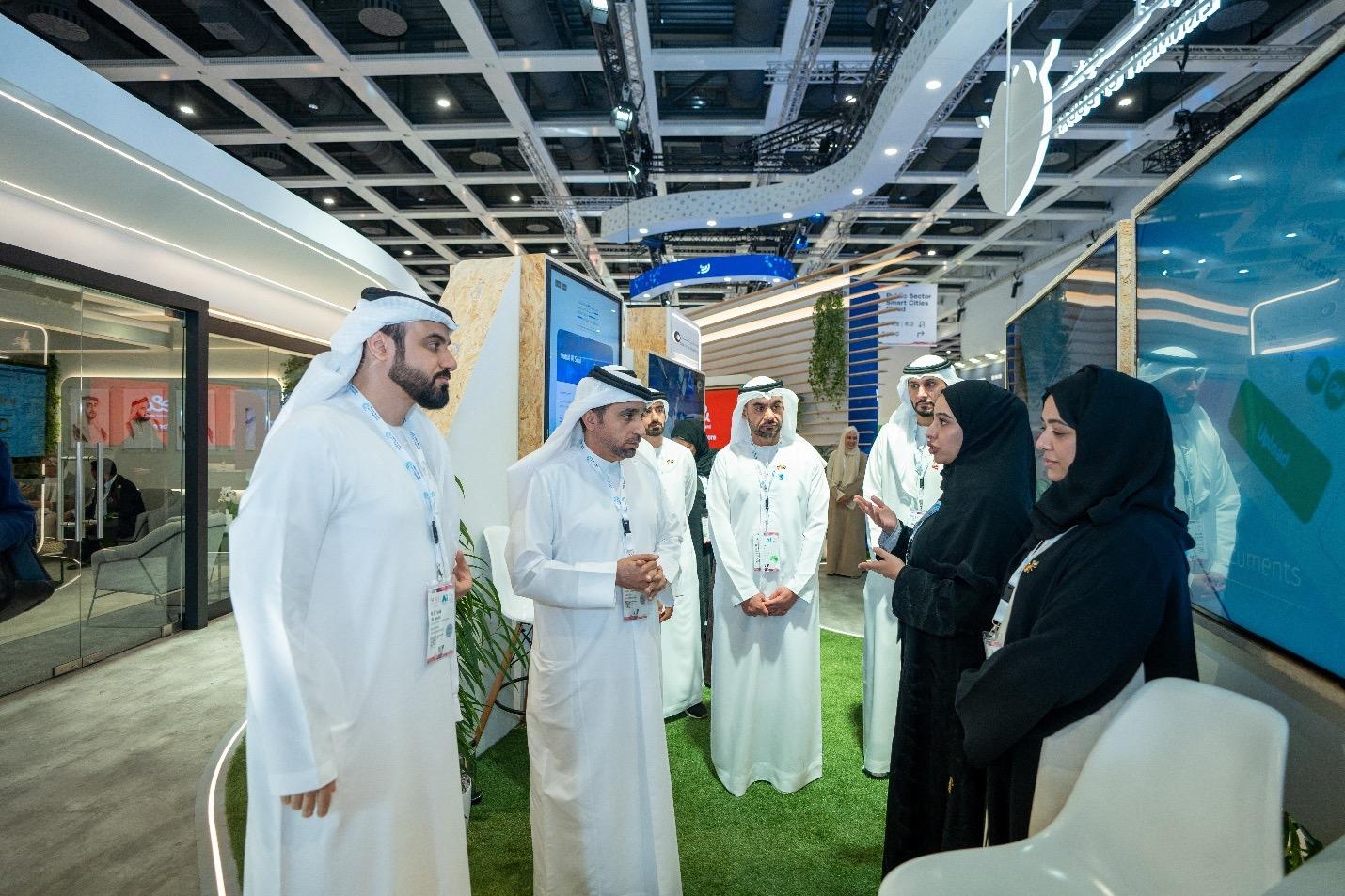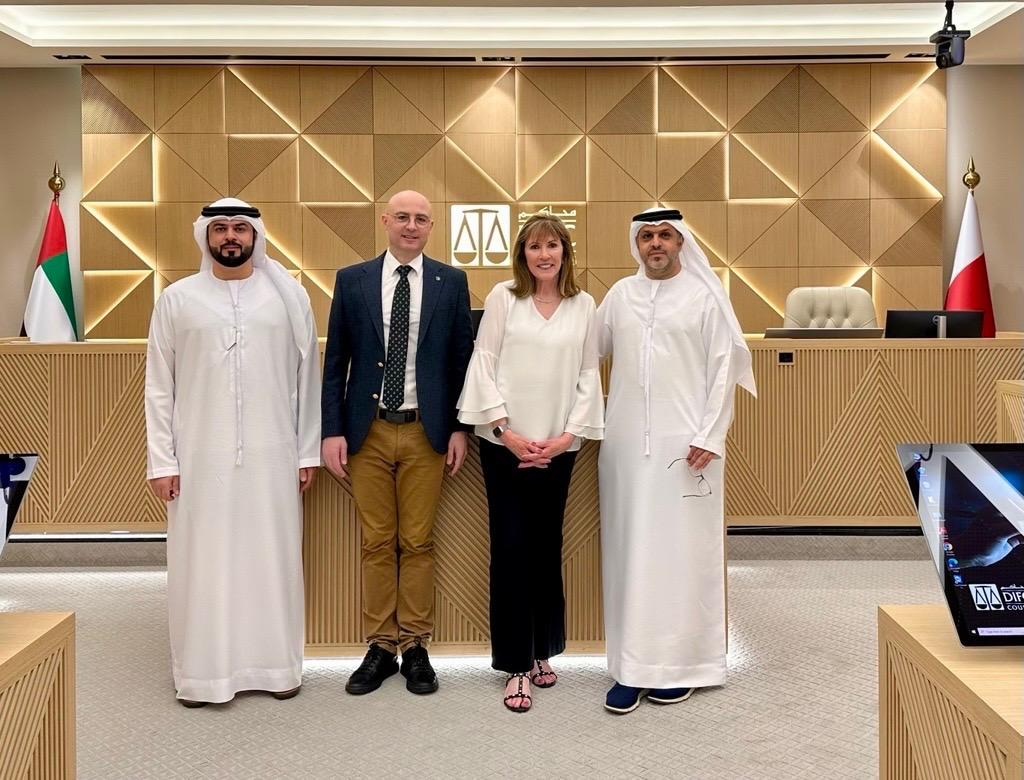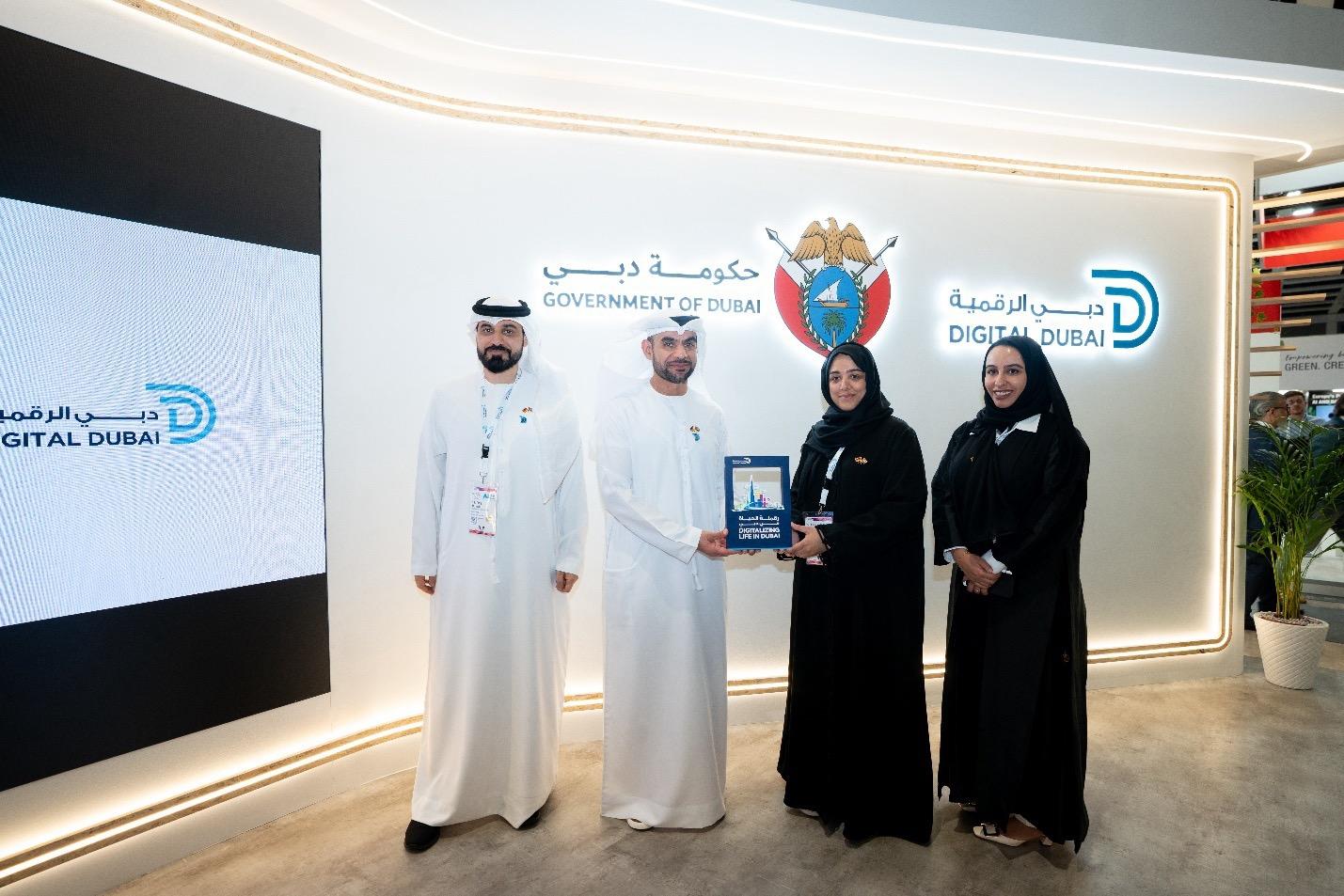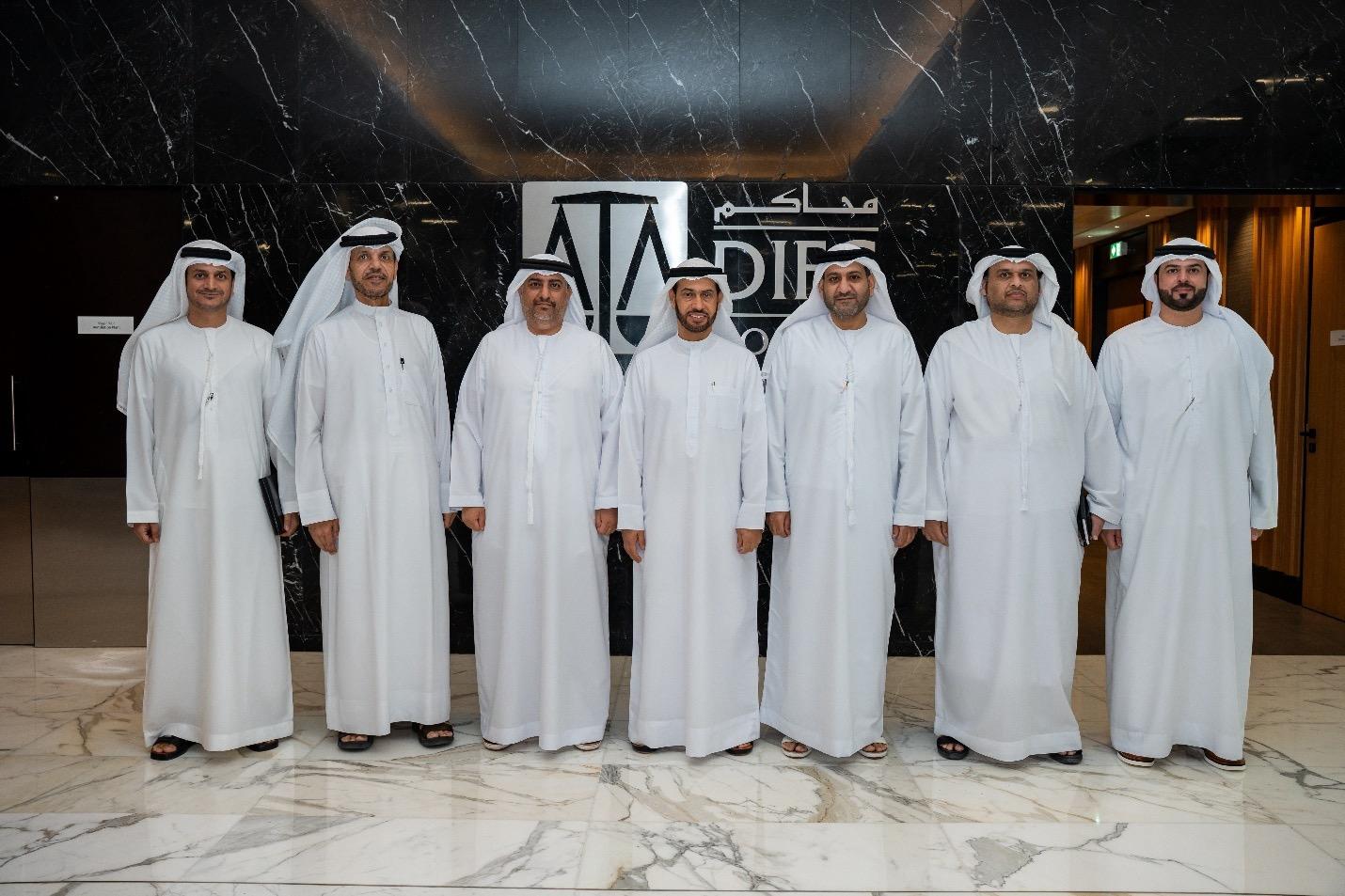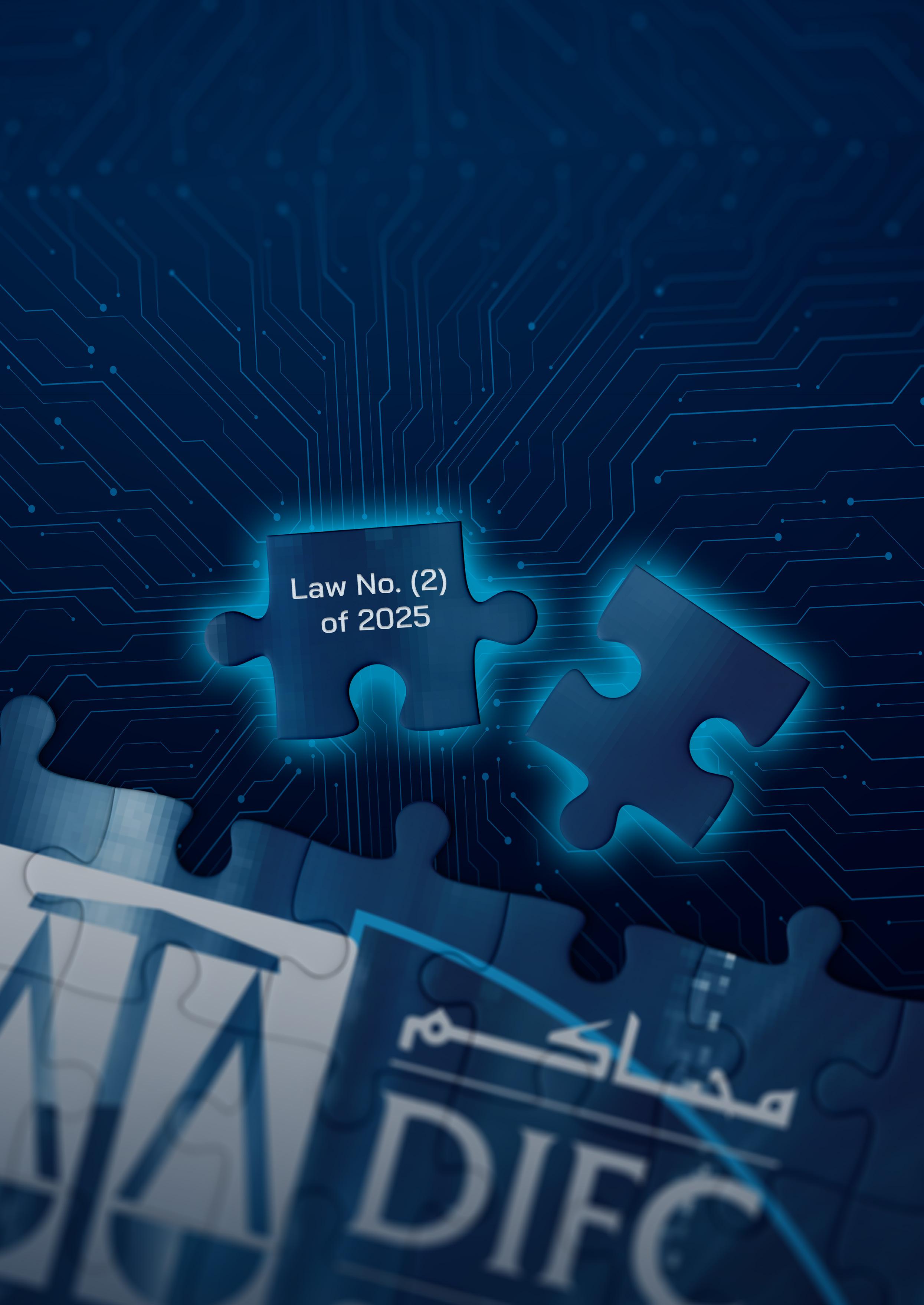

TABLE OF CONTENTS
Message from the Director
DIFC Courts reports increase in number of claims for first six months of 2025

H.H. Sheikh Mohammed bin Rashid issues law on the DIFC Courts
A day in the life: Ayesha Bin Kalban – DIFC Courts Registrar From misconceptions to model: The DIFC Courts’ success story Outreach and partnerships
3 4 6 8 10 12
Message from the Director
Welcome to the first edition of the DIFC Courts Bulletin for 2025.
The first six months of the year have been marked by a period of steady growth and strategic consolidation, as the DIFC Courts continued to support Dubai’s vision as a global centre for dispute resolution and legal innovation. In a rapidly evolving legal landscape, the Courts remain committed to delivering certainty, enforceability, and procedural clarity to all those who choose to engage our services.
Between January and June 2025, the DIFC Courts recorded a total of 650 cases across all divisions – a 38% increase year-on-year. The total value of claims reached AED 6.8 billion, more than six times the figure recorded during the same period in 2024. We also saw an increase in the average claim value across the board, with notable growth in complex, cross-border disputes and multi-party commercial matters.
Particularly significant was the continued utilisation of our opt-in jurisdiction clause. In the first half of the year, 38% of cases before the Court of First Instance, 39% of Small Claims Tribunal cases, and 18% of Arbitration Division matters were filed by parties who had voluntarily elected to resolve their disputes within the DIFC Courts’ framework. This continued uptake underscores growing trust in our legal infrastructure and reinforces our position as a preferred venue for international commercial dispute resolution.
In addition to our core casework, the Courts continued to see strong demand for ancillary services. The DIFC Courts Wills Service registered 922 new Wills – a 14% increase over the same period last year – and issued 27 Probate orders. Since inception, more than 13,400 Wills have been registered through the service, supporting non-Muslim residents and investors with a secure and recognised estate planning mechanism in the UAE. Our Pro Bono Programme also expanded its reach. In H1 2025, more than 524 individuals received free legal guidance, delivered through the support of 39 volunteer law firms and 51 lawyers. These figures reflect the deep commitment of our legal community to ensuring equitable access to justice for all.
A key defining development in this period was the issuance of Law No. (2) of 2025 by His Highness Sheikh Mohammed bin Rashid Al Maktoum, Vice President and Prime Minister of the UAE and Ruler of Dubai. This new legislation not only confirmed the DIFC Courts’ exclusive jurisdiction over civil, commercial, and labour matters within the Centre but also introduced important structural reforms, including the establishment of a dedicated Mediation Centre. The Law reaffirms the independence of the DIFC Courts and provides greater clarity and flexibility to both local and international users.
Technology and service modernisation also remained high on the agenda. In the first half of the year, 99% of all hearings were conducted remotely, reflecting our commitment to accessible and efficient dispute resolution. Our digital infrastructure continues to evolve in alignment with Dubai’s D33 Economic Agenda and broader Smart Government initiatives.
These achievements are not the result of statistics alone, but of sustained efforts by our bench of internationally respected judges, our administrative and registry teams, and the many legal professionals who contribute to the success of our court system. I extend my thanks to all of them.
As we move into the second half of the year, our focus remains on enhancing the user experience, expanding global cooperation, and maintaining the DIFC Courts’ standing as a leading model of commercial justice. We look forward to continuing to support the broader legal, business, and public sectors in their pursuit of clarity, confidence, and lawful resolution.
Thank you for your continued engagement and support.
H.E. Justice Omar Al Mheiri Director, DIFC Courts

DIFC Courts reports increase in number of claims for first six months of 2025
The Dubai International Financial Centre (DIFC) Courts reported statistics for the first six months of 2025.
Claim numbers grew 38% year-on-year as parties sought swift, independent justice in domestic and international commercial and civil disputes.
From January – June 2025, 650 claims were filed across all Court divisions, with a total average claim value of AED 13.2 million. The main Court of First Instance (CFI) and its specialised divisions recorded 61 claims, with an average claim of AED 117.7 million and a total of AED 6.7 billion.
The steady increase in claims demonstrates the Courts’ status as the jurisdiction of choice for delivering efficient and reliable judicial services to both corporate and individual users and underpins Dubai’s status as an international business hub.
Over the first half of 2025, the Civil & Commercial Division (CCD) recorded an 85% year-on-year growth in claims (from 33 to 61), with a total claim value of AED 2.3 billion.
Strong demand for the Courts’ Arbitration Division (ARB) continued as 23 claims were registered, an increase of 92% year-on-year, with a combined value of AED 4.5 billion.
The Small Claims Tribunal (SCT) dealt with 458 claims (a 73% year-on-year increase), representing an AED 43.2 million total claim value and an average claim value of AED 95,000.
The increases in caseload in the commercial and arbitration divisions and the Small Claims Tribunal were offset to some extent by a decrease in enforcement cases, so that total new cases increased by 38% to 650, as compared to 470 in the corresponding period last year.
Reflecting the continued public trust in the Courts, submitted claims covered sectors including banking and finance, retail, manufacturing, crypto, and real estate. With internationally recognised and Emirati judges upholding the highest global legal standards, claims ranged from complex cross-border disputes to simple employment contract disputes.

The statistics also highlight strong uptake of ‘optin’ claims, with parties outside the DIFC jurisdiction contractually selecting the DIFC Courts to resolve their disputes. In the Court of First Instance, 38% of claims were opt-in; 39% in the Small Claims Tribunal (SCT); and 18% in the Arbitration Division (ARB).
Ancillary services
The DIFC Courts Wills Service also recorded increased activity. In the first six months of 2025, 922 Wills were registered — a 14% increase compared to the same period in 2024 — and 27 Probate Orders were issued. Since its inception, the service has registered over 13,400 Wills, offering a secure mechanism for non-Muslim residents and investors to plan their estates in the UAE.
The Courts’ Pro Bono Programme also assisted more than 524 individuals, supported by 39 volunteer firms, and 51 volunteer lawyers. The DIFC Courts’ Pro Bono Programme is the first-of-its-kind in the Middle East and was implemented in 2009. It provides access to justice for those who are financially in need and who have legal issues that fall within the DIFC Courts’ jurisdiction.
Dubai Law No. 2 of 2025 underpins increased operations
In March, His Highness Sheikh Mohammed bin Rashid Al Maktoum, Vice President and Prime Minister of the UAE, issued a new law (Law No. (2) of 2025) which strengthened the DIFC Courts by formalising its exclusive jurisdiction to hear and resolve civil, commercial, and labour claims.
The new law also consolidates previous laws — Dubai Law No. 10 of 2004 and DIFC Law No. 12 of 2004 —into one statute. This improves transparency and removes outdated or conflicting clauses. It clarifies our jurisdiction over civil, commercial, employment matters, non-Muslim wills, trusts, and enforcement of arbitral awards.
The new DIFC Courts Law introduces changes that enhance the jurisdiction and procedural framework, in addition to ensuring that the DIFC continues to be viewed as an arbitration friendly forum. These changes offer practical benefits for businesses, including the ability to bring employment claims, secure interim measures, and resolve disputes through mediation.
Total value of claims across all divisions 6.8 billion

Total number of claims filed in Court of First Instance 61
Total number of claims in the Arbitration Division (ARB) 23
people received free legal consultations through the Pro Bono Programme 807
Total number of claims in the Small Claims Tribunal (SCT) 458
Orders issued with 99% of hearings conducted remotely 650 1,109
Total number of claims across all Divisions (January - June, 2025)
H.H. Sheikh Mohammed bin Rashid issues law on the DIFC Courts
Dubai issues Law No. (2) of 2025 to strengthen the DIFC Courts
In March 2025, His Highness Sheikh Mohammed bin Rashid Al Maktoum, Ruler of Dubai, issued Law No. (2) of 2025, marking a pivotal milestone in the evolution of the DIFC Courts. The new legislation replaces earlier frameworks and introduces major reforms aimed at enhancing judicial clarity, reinforcing independence, and promoting amicable dispute resolution supporting Dubai’s ambition to be a premier global dispute centre.
Clear and expanded jurisdiction
A cornerstone of the new law is the clarification and extension of DIFC Courts’ jurisdiction. Article 14 confirms exclusive authority over civil, commercial, and labour matters involving DIFC bodies, non Muslim wills, trust deeds, employment claims, and enforcement of international arbitration awards. It also codifies the Courts’ ability to provide interim measures such as asset freezes or identity inquiries—supporting foreign litigation or arbitration, thereby reinforcing the Carmon precedent.
The new legislation replaces earlier frameworks and introduces major reforms aimed at enhancing judicial clarity, reinforcing independence, and promoting amicable dispute resolution supporting Dubai’s ambition to be a premier global dispute centre.

Administrative and operational reforms
Law No. (2) formalises judicial and administrative structures, including roles for the Chief Justice and Director. The legislation clarifies the appointment process, responsibilities, and oversight mechanisms for judicial officers and registrars It also introduces clearer procedural rules for evidence, statutes of limitations, court orders, and the recognition of technical errors all designed to enhance procedural transparency.
The law affirms that proceedings are open to the public, with English as the official language, while reinforcing judicial independence by formalising protections and duties for judges.
Mediation Centre: a move towards amicable
resolution
One of the most significant reforms under the law is the establishment of a Mediation Centre within the DIFC Courts. The Centre will facilitate out of court dispute resolution, offering a flexible and cost effective alternative to traditional litigation. The framework allows the DIFC Courts President to define operational procedures, ensuring a robust infrastructure for mediated settlements.
Enhanced enforcement and transitional provisions
Law No. (2) strengthens enforcement powers across both onshore and offshore proceedings, reaffirming the Court’s ability to issue and execute interim and final relief. Article 32 codifies this “conduit” enforcement mechanism so that interim measures and judgments are effectively recognised both in the DIFC and beyond.
Transitional provisions clarify that the previous Laws No. 10 and 12 of 2004 are repealed but their regulations remain until updated, ensuring regulatory continuity.
From rigidity to modern resilience
Law No. (2) modernises the Courts by streamlining jurisdiction, codifying best practice remedies, and embedding judicial protection. It also places mediation on equal footing with litigation a shift that reflects an increasing global trend towards human centred justice. By reinforcing interim measures and clarifying authority, the law fosters legal certainty, making it easier for businesses to rely on the DIFC Courts with confidence. These reforms align with Dubai’s broader aim to become a leading centre for commercial dispute resolution.

Looking forward: implementation and impact
Law No. (2) of 2025 took effect upon publication in March 2025. Work is now underway to establish the Mediation Centre, revise court rules, and train judicial officers and lawyers on the law’s application. Stakeholders across legal, investment, and corporate sectors are expected to integrate these reforms, which promise to strengthen procedural integrity and streamline access to justice. For courts, practitioners, and users, the reform confirms that DIFC Courts are committed to robust, adaptable, and user friendly dispute resolution a hallmark of Dubai’s judicial system and global legal ambition.
One of the most significant reforms under the law is the establishment of a Mediation Centre within the DIFC Courts. The Centre will facilitate out of court dispute resolution, offering a flexible and cost effective alternative to traditional litigation.


A day in the life: Ayesha Bin Kalban – DIFC Courts Registrar
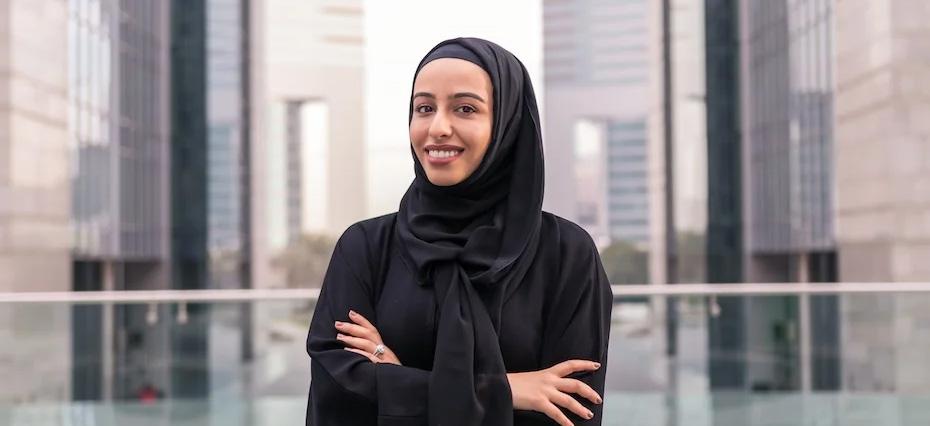
With the recent introduction of Dubai Law No. (2) 2025, the DIFC Courts have entered a new chapter — one focused on clarity, efficiency, and techdriven justice.
Ayesha Bin Kalban, Registrar at the DIFC Courts spoke with Gulf Business and discussed her path from case progression officer to leading court registry operations and how her journey can inspire Emirati women interested in pursuing a career in the legal profession.
To begin, tell us a bit about your background and how your journey with DIFC Courts began.
Sure. I started out in law because I genuinely wanted to do good — maybe it sounds cliché — but I really wanted to make a difference and improve people’s lives. I trained as a lawyer and qualified after about a year and a half in practice, but I quickly realised that being a lawyer wasn’t where I could contribute most meaningfully. Then an opportunity came up with the DIFC Courts in 2015, and I took it.
I joined as a case progression officer, ensuring filings were timely, parties were complying with rules and procedures, and judges and registrars were kept up to date. Through that role, I absorbed a lot — learning from judges, lawyers, and just by being immersed in the process. Over time, I saw how improving court systems could truly help people, and that’s when I realised, I wanted to contribute on a structural level.
Since then, I’ve steadily grown with the DIFC Courts — first as Assistant Registrar in 2018, then as Deputy Registrar
of the Small Claims Tribunal in 2019, followed by Deputy Registrar of the DIFC Courts in 2020. I hold a degree in Law and Political Science from the University of Saint Joseph Dubai and am qualified to appear before both local and federal courts in the UAE.
Empathy: Put yourself in the other person’s shoes — understand their context before relaying it to others.
And you became the Registrar in 2022, right?
In November 2022, I was appointed Registrar. Being appointed to the position was a big step, and I was hesitant at first — big shoes to fill. But my vision aligned with the DIFC Courts’ ambition to become a leading commercial court globally. I saw it as a challenge to enhance people’s experience in dispute resolution and contribute to Dubai’s legal and economic strategy.
Today, I oversee case progression, sit as a judge and mediator with the Small Claims Tribunal, and hear applications in the Court of First Instance, Court of Appeal, and the Enforcement Department.
I often say that during my eight-hour workday, I’m in the “hot seat,” ensuring cases move efficiently and that parties feel heard and understood.
Are there any cases — without naming specifics — that really shaped your approach at the DIFC Courts?
Several, yes. Many reminded us to remain agile. Sometimes, rules must evolve to accommodate fairness and efficiency. We’ve had situations that challenged our existing frameworks, particularly around jurisdiction, and these helped us revisit and update our processes.
At the DIFC Courts, we welcome stakeholder feedback and use it to enhance user experience.
Let’s shift to Law No. (2) of 2025. What are the most important updates from your perspective?
It consolidates previous laws — Dubai Law No. (12) of 2004 and DIFC Law No. (10) of 2004 — into one statute. This improves transparency and removes outdated or conflicting clauses. It clarifies our jurisdiction over civil, commercial, employment matters, non-Muslim wills, trusts, and enforcement of arbitral awards.
It also strengthens governance, giving the Chief Justice greater authority and clearly separating judicial and administrative functions.
Additionally, it supports digital innovation, allowing us to continue enhancing our tech-driven court processes.
How has this law helped you in your role as Registrar?
It’s given me more clarity and streamlined procedures. With expanded enforcement powers and refined jurisdiction, we’re able to navigate hurdles faster, and thereby serve users.
How does the law strengthen judicial independence while aligning with UAE legal reforms?
It creates a clearer separation between judicial decisionmaking and court administration. It expands the chief justice’s authority over judge assignments and ensures decisions remain independent.
This framework supports the UAE’s broader judicial reforms aimed at investor confidence and modernised dispute resolution.
On mediation — how does this initiative impact court efficiency and user experience?
Mediation is less formal, faster, and often more effective. It’s been used since ancient times and is making a resurgence in modern justice. When parties agree on outcomes, they’re more likely to comply. This helps reduce caseloads, lowers stress on judges, and fosters faster dispute resolution — sometimes in a matter of hours. It’s better for business continuity and overall satisfaction.
What about clearer jurisdictional boundaries — how has the new law improved this?
It refines our role, particularly in enforcement of civil and employment matters involving DIFC entities.
It streamlines our power to recognise arbitral awards and provide interim relief, especially in support of foreign proceedings, this being in line with common law practice.
What’s being done to speed up litigation and improve case management?
We’re focusing on the user experience — creating efficient, affordable procedures and fast-tracking hearings. Some emergency hearings can be scheduled within an hour. All of this reinforces Dubai’s global standing as a hub for agile and tech-savvy dispute resolution.
How has technology helped the DIFC Courts enhance efficiency and service delivery?
Technology is central to our court strategy and aligns with Dubai’s broader vision of becoming a global leader in smart, efficient dispute resolution. From advanced digital case management tools to the ability to fasttrack hearings — including emergency matters within just an hour — technology is transforming how justice is delivered.
For users, this means greater convenience and flexibility; they no longer need to worry about travel or scheduling conflicts, as proceedings can be seamlessly integrated into their daily lives. Additionally, the digital shift has significantly reduced paperwork, eliminated delays, and improved transparency across the entire legal process. We actively listen to our community — lawyers, litigants, stakeholders — and use their feedback to refine our digital services. Whether it’s about court processes or areas where convenience can be improved, our aim is always to deliver a seamless user experience. Technology is never implemented for its own sake; it must serve our users.
You mentioned mediation earlier. What are your top three tips for a successful negotiation?
1. Active listening: It’s not just about hearing someone but making them feel heard. That alone can defuse a lot of tension.
2. Empathy: Put yourself in the other person’s shoes — understand their context before relaying it to others.
3. Read the room: Know who you’re speaking to, build rapport, and be curious about them. Understanding what matters to the other side improves outcomes.
I’ll add a fourth—be curious. It helps create connection and trust, which is essential in negotiations.
Finally, what advice would you give other Emirati women pursuing a career in the legal profession?
We sometimes start on the back foot, especially if we have responsibilities at home. But those experiences — like motherhood — instil resilience, compassion, and understanding, which are essential in roles like mine.
My advice is: don’t compartmentalise your life, use your strengths from both personal and professional spheres. Work-life balance is important, but it’s okay for those sides to overlap sometimes.
From misconception to model: The DIFC Courts’ success story
The introduction and establishment of the Dubai International Financial Centre (DIFC) over 20 years ago was a bold and significant step towards building a worldclass regulatory and legal framework.

Hanya Jones, Intern, DIFC Courts

Upon this framework, international investment, business owners and entrepreneurs would be attracted and be able to contract and conduct trade and business with confidence of legal certainty. By way of extension, the overall objective was to present Dubai as a major international business hub from where significant financial investment would be attracted, developed and secured. It is a misconception that the DIFC Courts was built upon, or an extension to, the English legal system and its common law.
Prior to the inception of the DIFC Courts, the UAE’s legal system was founded on Arabic-inspired civil law principles, arbitration existed, but only in its infancy. At that time the UAE’s legal system was still developing its international reputation for managing complex business disputes with the objectivity, efficiency, and enforcement capabilities necessary in global commerce.
During those early years, parties frequently looked to other well-known centres like Hong Kong, Singapore, London, or New York, in search of trustworthy arbitration or dispute resolution. No venue in the region could absorb the kind of large, multi-jurisdictional business cases that more traditional jurisdictions were absorbing.
The DIFC Courts was not designed to replicate the existing English judicial system, from inception the aim was to move beyond rigid frameworks and build a system responsive to global business needs.
A system built for change, not tradition
The DIFC Courts was not designed to replicate the existing English judicial system, from inception the aim was to move beyond rigid frameworks and build a system responsive to global business needs. This was achieved through active engagement with international working groups, associations and organisations and the appointment of judges from diverse jurisdictions, shaping a unique and competitive judicial landscape.
Nevertheless, criticisms emerged. New laws, hybrid rules, and the implementation of a common law framework in a civil law country provoked discussions about sovereignty, jurisdiction and necessity. However, doubts diminished as businesses, both foreign and domestic, recognised the advantages of having parallel structures, providing choice, adaptability, and commercial certainty.
Ultimately, reforming the courts in any jurisdiction is only one aspect of the solution. Real progress requires inter-institutional collaboration, which is why the DIFC Courts forged alliances with the UAE judiciaries to align enforcement and resolve jurisdictional conflicts. True change is achieved by allowing for creativity, blending tradition, and the DIFC Courts has aptly demonstrated progress through adversity.
Justice with an alternative approach
In pursuit of a unique approach reflecting the needs of the region, Dubai observed well-established jurisdictions, including England, Singapore, Australia and other common law jurisdictions, to absorb and reflect on their strengths, rather than mirroring them. Many Civil protocols, including civil procedural rules, were carefully adjusted to meet the unique requirements of the DIFC while maintaining its autonomous regulatory structure. The ultimate product is a well-designed system that combines local creativity with global standards of excellence.
The DIFC Courts has carved their own path with tailor-made rules, specialised divisions, and a hybrid procedural model built for speed and clarity. This includes:
• Specialised Divisions & Rules: From the Small Claims Tribunal to the Technology & Construction Division, each branch operating with bespoke procedures designed for efficiency and complex disputes.
• Hybrid Model: The Courts blend common law principles with local innovation, using flexible tools like early case management and proactive disclosure to streamline proceedings.

• 2024/25 Legal Clarity: Recent amendments to the Application Law (Articles 8A and 8B) cement the DIFC’s identity. Courts now prioritise DIFC statutes but can selectively draw from English law and other common law systems to fill gaps, while Article 8B allows interpretation using global jurisprudence and model laws.
The distinction differentiates between the aim and the means. Primarily, the aim was to foster an advanced and adaptable court system for international organisations. While the means revolves around analysing successful global models without being strictly bound by those models. The DIFC Courts has a track record of establishing and amending their own rules and judicial identity, evolving independently from the English courts, while remaining responsive to the changing nature of international commerce.
Delivering Confidence, Opportunity, and Accessibility
The DIFC Courts has introduced and provided an effective platform for access to justice and reshaped the mechanisms for dispute resolution. This has been fulfilled not only providing for sensible and practical remedies but also providing confidence to individuals and companies. The DIFC Courts has extended access to a reliable justice system across and beyond the Middle East, through an opt-in jurisdiction. Parties, from anywhere in the world, can contractually agree for their dispute to be heard in this forum.
Impact of the DIFC Courts on Other Jurisdictions
The DIFC Courts has established a regional benchmark for incorporating common law into a civil law system, directly encouraging comparable initiatives such as the Qatar International Court and Dispute Resolution Centre (QICDRC); Abu Dhabi Global Market (ADGM) Courts, and Kazakhstan’s Astana International Financial Centre (AIFC) Court. By successfully demonstrating that such a system can blend international standards with local governance, the DIFC Courts has set new expectations for judicial independence and procedural efficiency across the Middle East and beyond. This has influenced other jurisdictions to implement analogous frameworks.
Conclusion
The DIFC Courts is not a duplicate of the English legal system, rather a system of confidence and change, built for a city in perpetual expansion, meeting the demands of global business with justice that is independent, adaptable, and trusted.
Outreach and partnerships
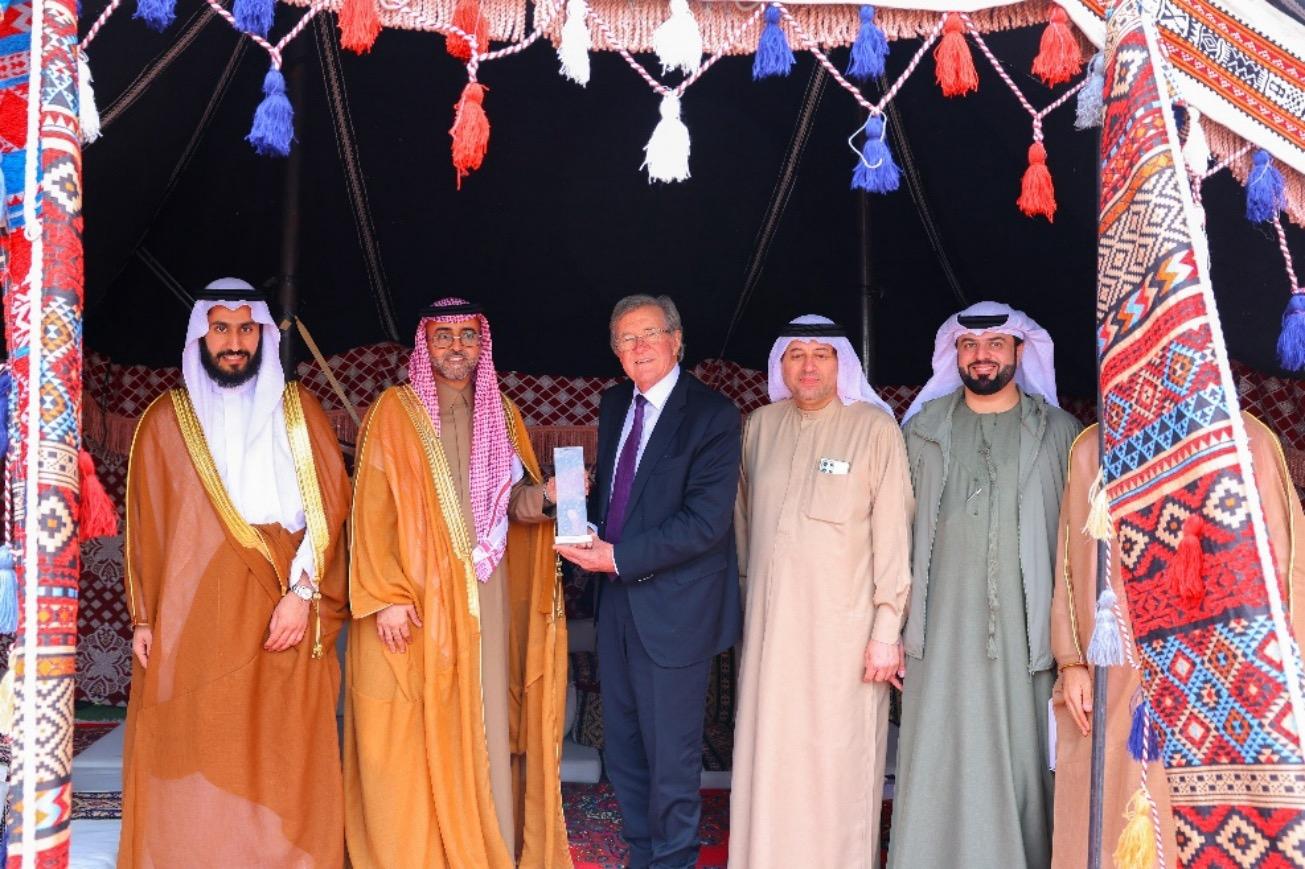
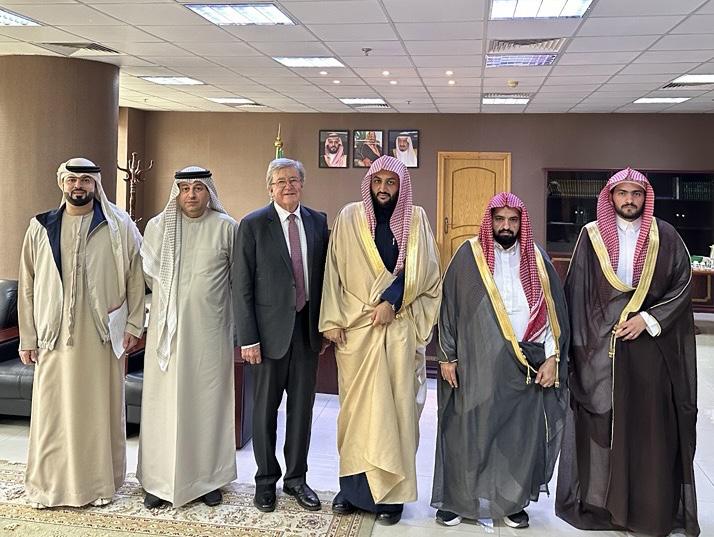
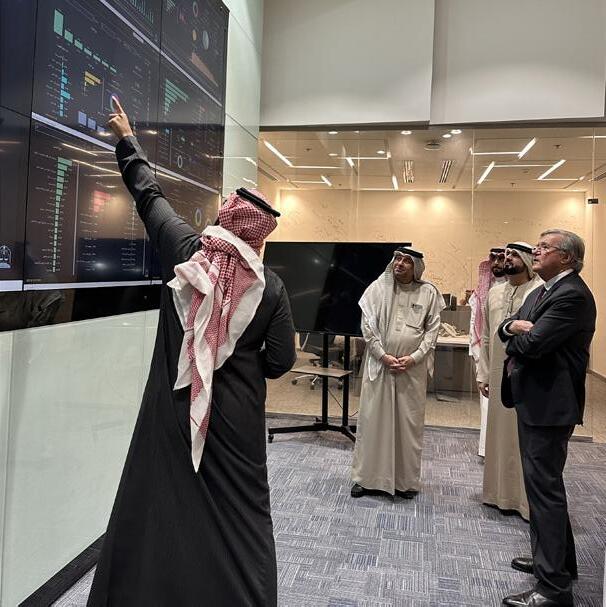
H.E. Chief Justice Wayne Martin represented the DIFC Courts at Riyadh International Disputes Week. The Chief Justice spoke at the SCCA (Saudi Center for Commercial Arbitration) and met with legal leaders including H.H. Prince Dr. Bandar bin Salman Al Saud. He also explored digital initiatives at the Board of Grievances, reaffirming the DIFC Courts’ commitment to legal collaboration and innovation.
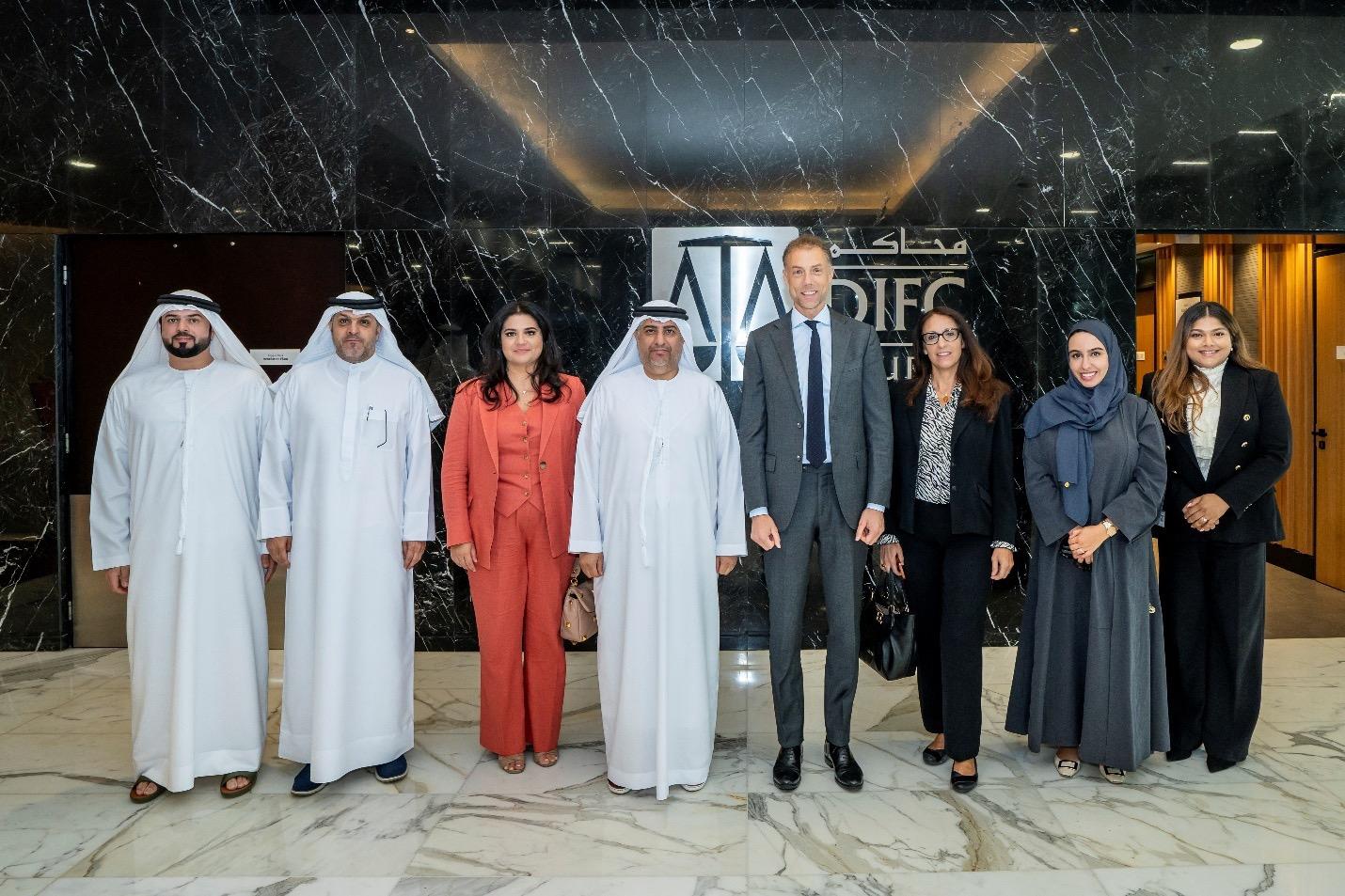
The DIFC Courts Director, H.E. Justice Omar Al Mheiri, and Deputy Chief Justice, H.E. Justice Ali Al
The Consul General’s visit included an overview of the DIFC Courts services, including the Small Claims Tribunal (SCT) and the Wills Service.
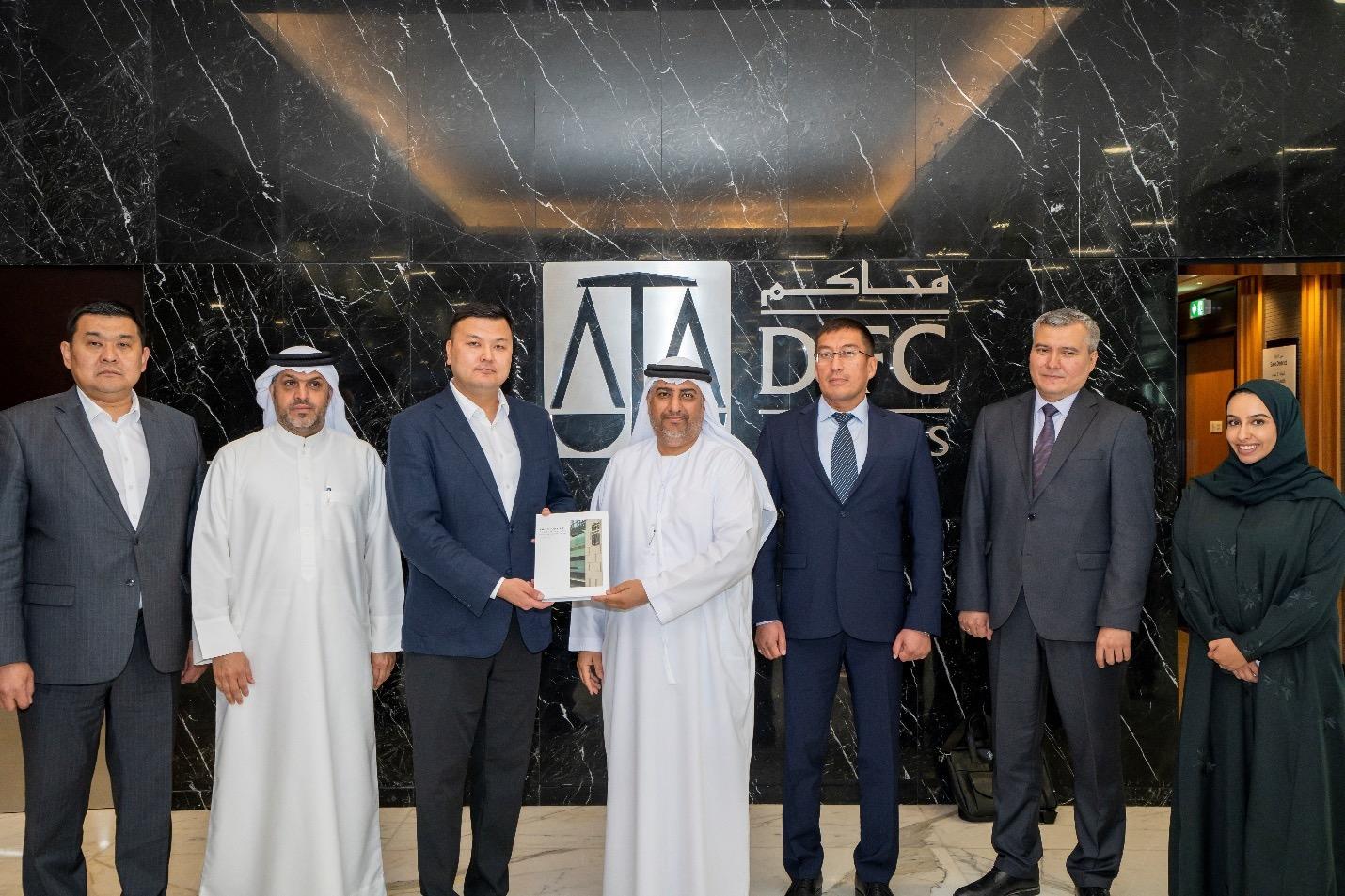
The DIFC Courts Director, H.E. Justice Omar Al Mheiri, and Deputy Chief Justice, H.E. Justice Ali Al Madhani, welcomed H.E. Aiaz Baetov, Minister of Justice of the
Republic, and his delegation to the DIFC Courts.
The visit featured discussions on the adoption of English common law, the operation of institutions under a specialised legal framework - underscoring mutual interests in legal reform and international cooperation.
The DIFC Courts Deputy Chief Justice,
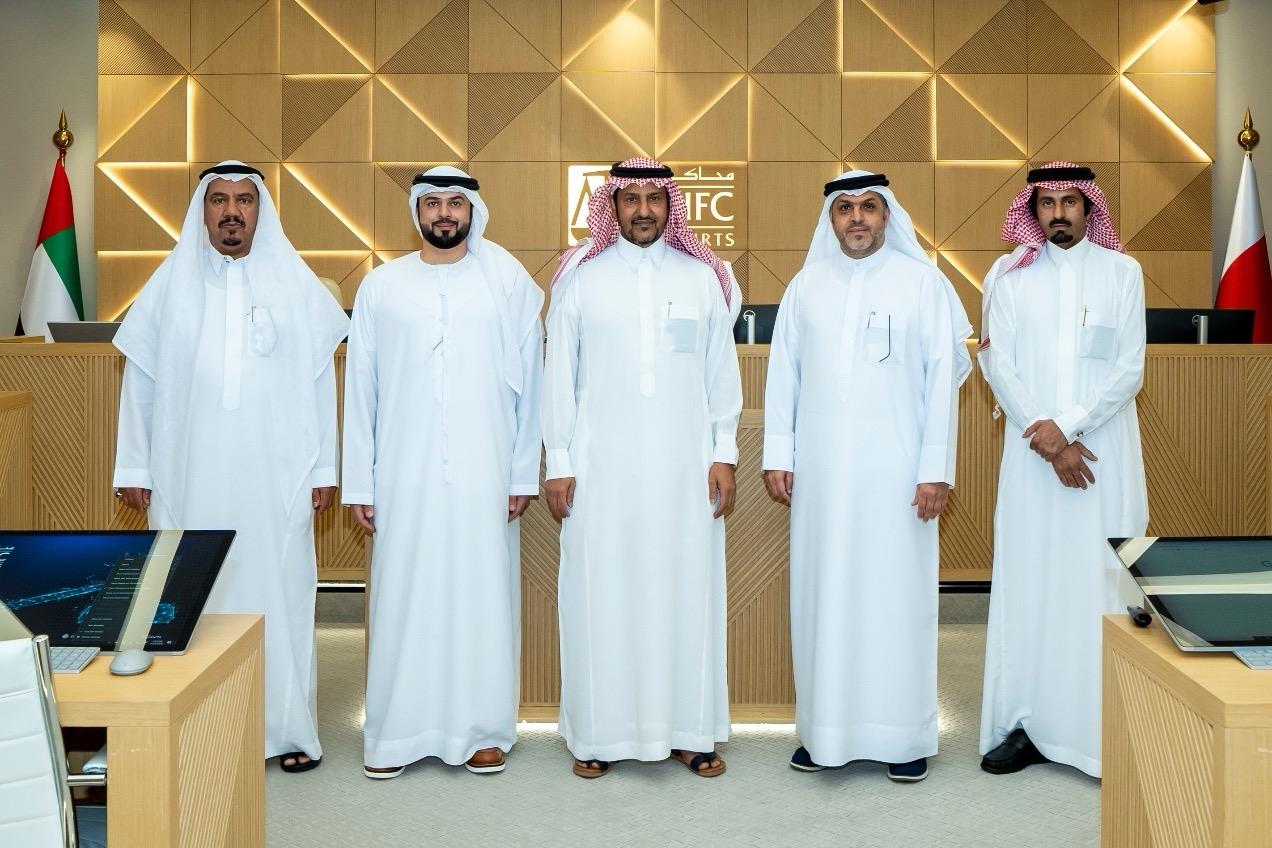
During the visit, His Highness toured the Courts’ facilities and explored the latest smart systems developed in line with international standards. These advancements reflect the DIFC Courts’ ongoing commitment to judicial excellence, innovation, and alignment with international best practices.
H.E. Justice Shamlan Al Sawalehi, Judge in Charge, Arbitration Division, DIFC Courts, shared insights at the 4th ADGM–ICSID Joint Conference, on the UAE’s expanding influence in shaping international arbitration standards.
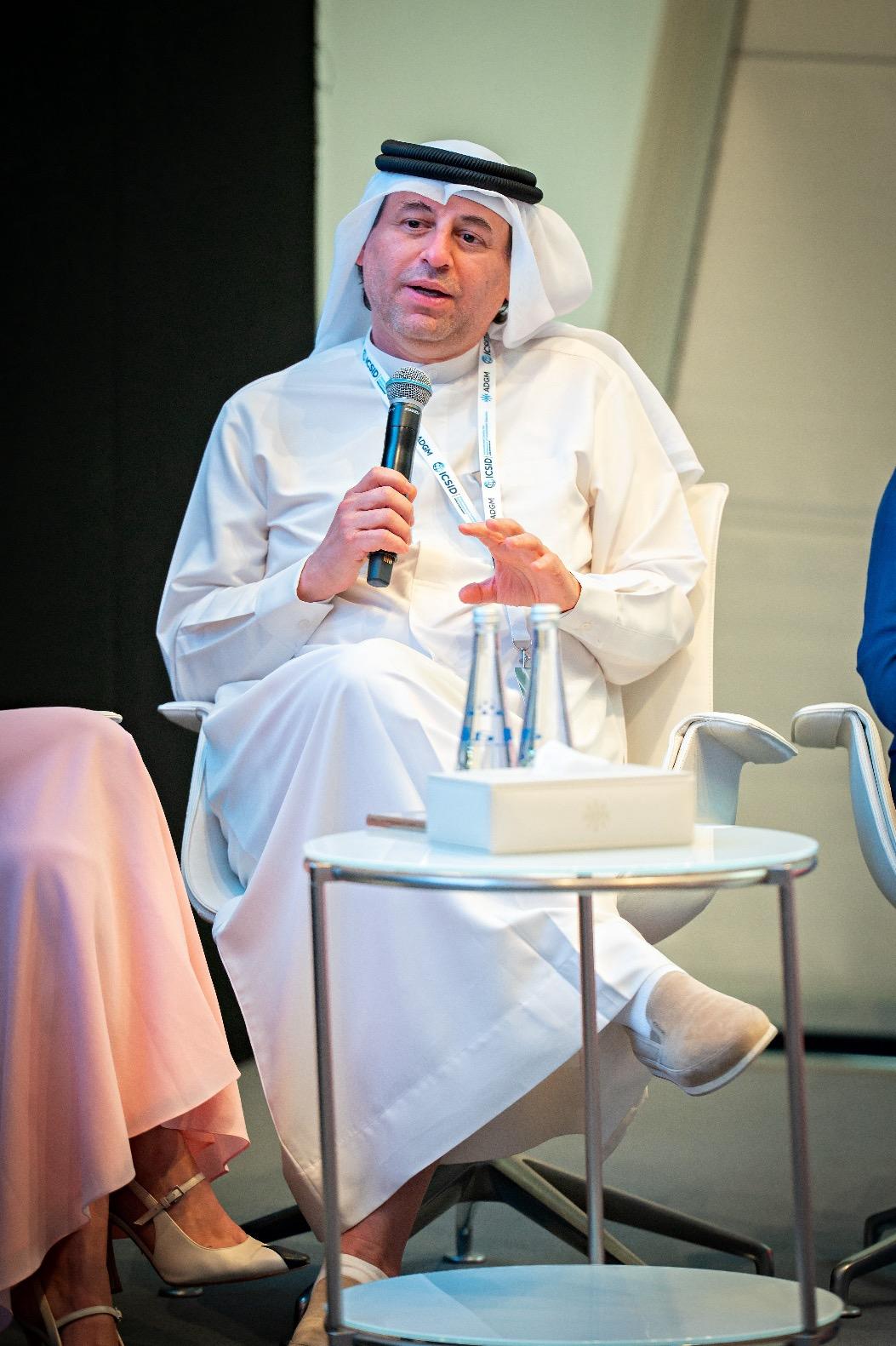
International Association for Court Administrators (IACA)
IACA
